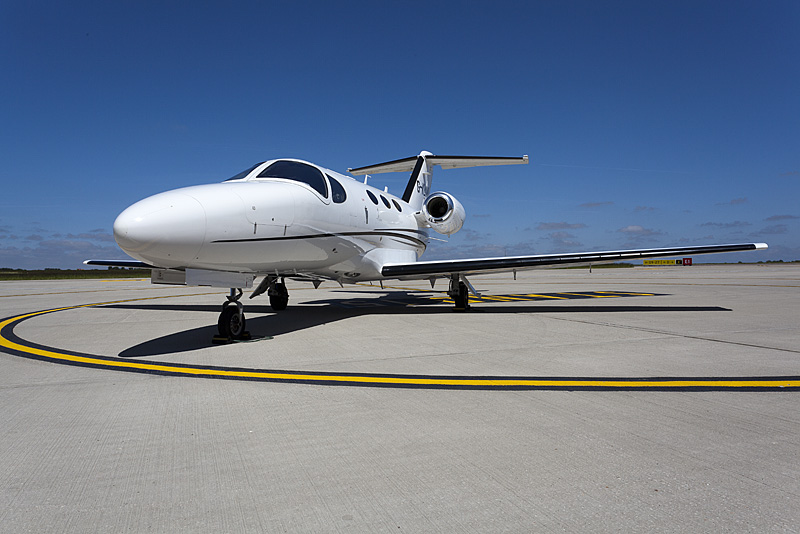
In the realm of private aviation, the decision of whether to manage an aircraft independently or place it with an operator for Part NCC (Non-commercial operations with complex motor-powered aircraft) operations is pivotal. While some aircraft owners may prefer the autonomy of managing their own aircraft, there are compelling benefits to entrusting it to an operator. This article explores the advantages of placing a private aircraft with an operator for Part NCC operations.
1. Expertise and experience
Operators specialising in Part NCC operations typically employ professionals with diverse backgrounds in aviation, including pilots, aircraft maintenance engineers, and regulatory compliance experts. These individuals bring a wealth of experience and specialised knowledge to the table, ensuring that the aircraft is managed efficiently and in compliance with relevant regulations. They are well-versed in the intricacies of aircraft maintenance, scheduling, and operational planning, allowing them to optimise the aircraft’s performance while minimising downtime and operational disruptions.
2. Regulatory compliance
Navigating the regulatory landscape governing private aviation can be daunting for individual aircraft owners. Part NCC operations are subject to stringent regulations aimed at ensuring safety and operational integrity. Operators have dedicated teams responsible for ensuring compliance with these regulations, including maintaining accurate records, conducting regular inspections, and implementing safety protocols. By entrusting their aircraft to an operator, owners can rest assured that all regulatory obligations are met, minimising the risk of non-compliance and associated penalties.
3. Cost efficiency
Managing a private aircraft independently can be financially demanding, requiring substantial investments in personnel, infrastructure, and administrative overhead. By placing their aircraft with an operator, owners can benefit from economies of scale, as operators spread fixed costs across multiple aircraft. This can result in significant cost savings for the owner, without compromising on the quality of services or operational standards. Operators also have established relationships with maintenance providers, fuel suppliers, and insurance companies, allowing them to negotiate favourable terms and pass on cost savings to their clients.
4. Access to resources
Operators have access to a wide range of resources that may not be readily available to individual aircraft owners, for example; pilot training programs certified by aviation authorities, and comprehensive insurance coverage tailored to the specific needs of private aircraft owners. By tapping into these resources, aircraft owners can benefit from enhanced operational capabilities, reduced downtime, and improved safety and reliability.
5. Risk management
Operating a private aircraft involves inherent risks, ranging from safety hazards and mechanical failures to regulatory non-compliance and financial liabilities. Operators have robust risk management systems in place to identify, assess, and mitigate these risks effectively. This includes conducting thorough safety assessments, implementing preventive maintenance programs, and maintaining comprehensive insurance coverage. By partnering with an operator, aircraft owners can transfer some of the operational risks to a professional entity with the expertise and resources to manage them effectively, providing greater peace of mind and security.
6. Flexibility and convenience
Placing a private aircraft with an operator offers greater flexibility and convenience for the owner. Operators can provide a range of services tailored to the owner’s specific needs, including crew scheduling, flight planning, and concierge services. This allows owners to enjoy the benefits of private aviation without the hassle of managing day-to-day operations. Operators can also accommodate last-minute changes in travel itineraries, handle logistical arrangements, and provide personalised services to enhance the overall travel experience.
7. Enhanced asset value
Aircraft managed by reputable operators often maintain higher resale values due to their well-documented maintenance records, regulatory compliance, and operational reliability. Prospective buyers are more likely to be attracted to aircraft with a proven track record of professional management, which can translate into a higher return on investment for the owner in the long run. By placing their aircraft with an operator, owners can maximise the asset’s value and liquidity, ensuring a favourable resale outcome when the time comes to divest.
8. Peace of mind
Perhaps the most significant benefit of placing a private aircraft with an operator is the peace of mind it offers to the owner. By entrusting their asset to a professional organization, owners can delegate the complexities of aircraft management to experts, allowing them to focus on enjoying the benefits of private aviation without the stress and burden of day-to-day operations. Operators assume responsibility for ensuring the safety, reliability, and regulatory compliance of the aircraft, allowing owners to relax and enjoy their travel experiences with confidence and peace of mind.
In summary, placing a private aircraft with an operator for Part NCC operations offers a myriad of benefits, including expertise and experience, regulatory compliance, cost efficiency, access to resources, risk management, flexibility, enhanced asset value, and peace of mind. By leveraging the capabilities of a reputable operator, aircraft owners can optimise the management of their asset, maximise its value, and enjoy a seamless and hassle-free ownership experience.
Considering Saxon Air to help you with this? Inquire today.
